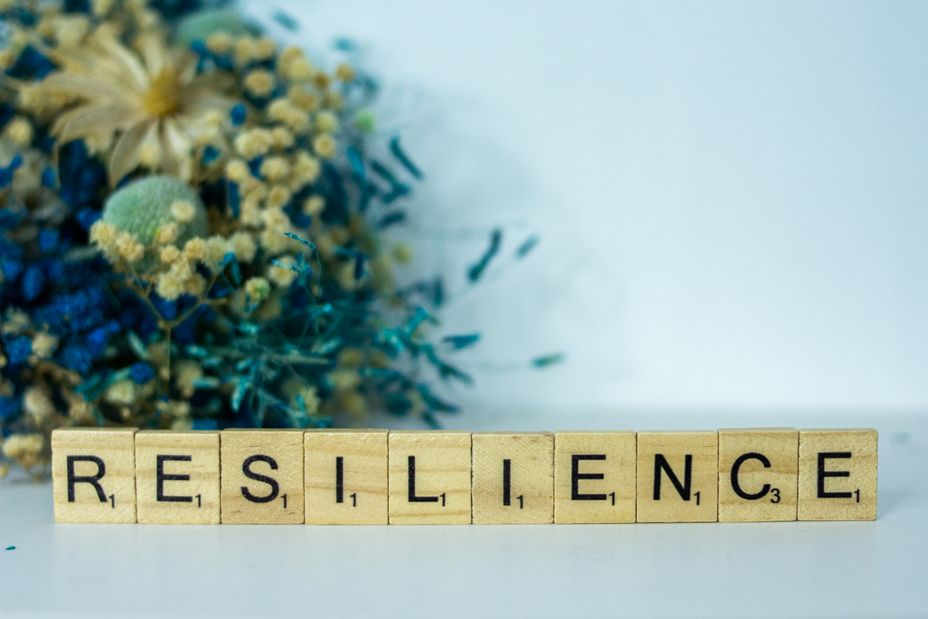Leaning on knowing my Resilience -Personal Example
Yesterday to this morning for me is another example of why I am so thankful every day that I took the University of Pennsylvania’s online course on learning and applying resilience skills, so grateful that I typed up every single word that was taught, and that I recently started this group to share this critical knowledge from the actual people that researched this.
U. of Penn’s definition of Resilience is not only the ability to bounce back from adversity, but also the ability to grow from challenges.
In this course, Dr. Karen Reivich focuses on the psychosocial aspects of resilience. The aspects of resilience that are determined by your psychology, and by your social relationships and interactions.
So, yesterday was one of the rare days within recent years that 1) my fatigue completely took hold of me, and 2) my brain’s sleepiness was to the point that most of my brain would not wake up - all day- and I could see myself not able to function practically at all.
It’s not like this was the first time this ever occurred, and it’s always a possibility, but it is still very hard to watch myself go through this and it is also very hard to wake up from the next morning—the kind of “slap in the face” reminder that oh yeah, I live with a chronic illness that can at times, and I will never know when, will have me almost completely disabled.
So, this morning I woke up with this “setback.” And I look at it like I was brought to a “fork in the road.” And now while yesterday’s adversity was not in my control, this morning, which I always work to look at as a fresh, new day full of good possibilities, it was actually now in my control as to which way I let myself go in my mind at this “fork in the road.”
Of course upon waking up, my mind started on autopilot and took me the wrong direction. Then, the moments that I made myself ready for, the clarity, the practice of never staying in autopilot and moving forward on purpose, with intention, with as much control as I can have and before it gets too hard to get the control back.
I turned my brain’s thinking around, I put my focus on the truths that were on my side- including but not limited to the fact that I Have Bounced Back From Much Worse Than This…;and I turned my mind away from dangerous cognitive distortions and right then and there pretty fast I would not let the negativity bring me downward.
Yesterday, I still had the mindful awareness to apply radical acceptance, non-judging, patience, trust, and just letting be with what is — for this one day -these are part of the 9 Attitudes of Mindfulness that I have begun to write posts about here for you. These all link together with the skills of resilience.
What you will learn too here, amongst other important things is that -it is when we start paying attention to our inner experience, that we rapidly discover that there are certain thoughts and feelings and situations that our mind seems to want to hold on to.
And amongst other what are called “resilience interventions” that I applied were these skills that I committed to in living with intention- what are called “protective factors” that I nurture every single day so they will be there for me when I need them most, when I have to dig deeper from a wider range of resources —
I learned the Critical Skill of Optimism —which gives us the attitude to continue to persist —and I learned how Optimism is the most important factor in resilience and in all of life - well-being and strong relationships;
I commit myself to living for clarified purposes that are bigger than myself, this is not limited to relationships, it is even better for our wellbeing to have an attachment to something larger than yourself which might also be to a mission, to a purpose, to an idea, something that you believe is critically important and worth fighting for (by the way, my personal mission is that all of you are worth fighting for);
I learned what my Personality/Character Strengths are and I learned how to leverage them;
I Developed Mental Agility;
I learned how to create a “buffer of positivity”, and what is called the “Broaden And Build” theory of positive emotions;
I learned how to take control of “thinking traps” by applying “cognitive strategies”…
All of these are what is so effective about the newest branch of psychology that I approach my life by to overcome all that I do overcome— where in addition to everything else, we build strengths supports.
Positivity Psychology, a somewhat newer term, describes a dual approach to mental health- where we build strengths supports, and healthy lifestyles, as well as treating illness and distress.
AlI of this is all what I will keep breaking down into chunks in most of my posts here to this group.
This takes some work first on my part - to keep breaking down the many variables- so bear with me.
#MentalHealth #MajorDepressiveDisorder #ChronicFatigue #ChronicIllness #Disability #ChronicFatigueSyndrome #Depression #Anxiety #MoodDisorders #MotorDisorders #BipolarDepression #BorderlinePersonalityDisorder #AutismSpectrumDisorder #AnorexiaNervosa #EatingDisorders #BipolarDisorder #Selfcare #ADHD #Relationships #FamilyAndFriends #Fibromyalgia #ChronicPain #Cancers #Addiction #Selfharm #SuicidalIdeation #SuicidalThoughts #SuicideAttemptSurvivors #Suicide #ComplexPosttraumaticStressDisorder #PTSD #MyalgicEncephalomyelitis #PostTraumaticStressDisorder #Trauma #RheumatoidArthritis #SocialAnxiety #LearningDisabilities #CrohnsDisease #GeneralizedAnxietyDisorder #PersistentDepressiveDisorder #RecurringMDD #TreatmentresistantDepression #Mindfulness #MDD #TRDSupport #EhlersDanlosSyndrome #AutonomicDysfunction #PosturalOrthostaticTachycardiaSyndrome #MultipleSclerosis #LymeDisease #MajorDepression #ClinicalDepression #MotivationMonday #resilience #Grief


